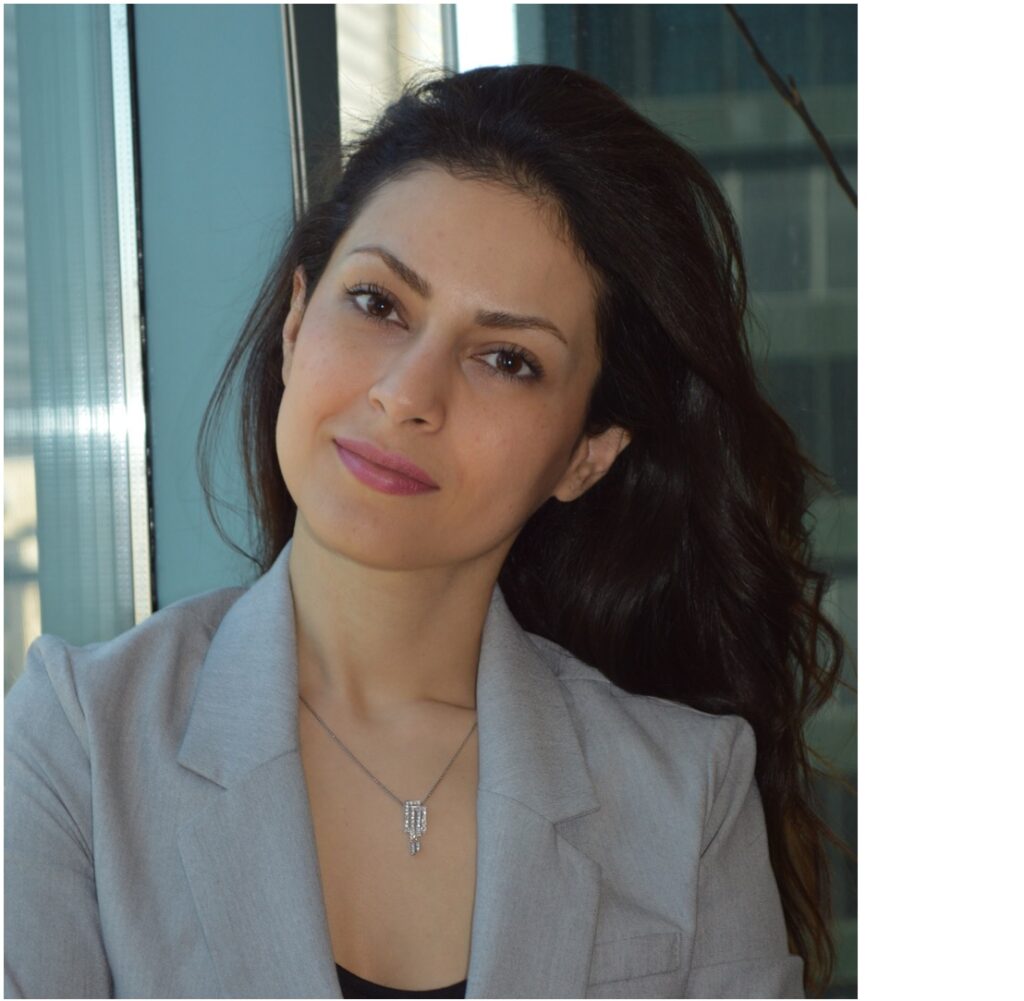
Throughout the Microlecture Series in Sustainable Living, six of York University’s world-renowned experts share research, thoughts and advice on a range of critical topics related to sustainability. Their leadership and expertise, however, extends beyond the six-minute presentations.
Over the last several weeks, YFile presented a six-part series featuring the professors’ work, their expert insights into York’s contributions to sustainability, and how accepting the responsibility of being a sustainable living ambassador can help right the future.
Part six features Assistant Professor Shooka Karimpour.
Karimpour is an assistant professor of civil engineering at York University's Lassonde School of Engineering where she leads the Environmental HydroDynamics (EHD) lab. Karimpour's research aims to investigate how turbulent mixing and entrainment are induced and how they affect mass and contaminant transport. Currently, her team is working on entrainment of multi-phase flow, focusing on aerated flow and microplastic contaminants.
Karimpour's research has been published in Journal of Fluid Mechanics, Environmental Science and Technology, and Frontiers in Marine Science. She is also recipient of several international and national awards including the Kefeer Medal from the Canadian Society of Civil Engineering.

Q: What does it mean to be a “sustainable living ambassador” and how does it foster positive change?
A: We are reaching a point in that some of the changes to our planet may have severe consequences in the near future. Our ocean, freshwater lakes and rivers, for example, are under extreme pressure on many fronts from ocean acidification to widespread of plastic pollution. York University’s Microlecture Series in Sustainable Living enables the accessible training of “sustainable living ambassadors” on some of the key environmental issues including water quality and climate change.
Q: What does it mean to be a “sustainable living ambassador” and how does it foster positive change?
A: This is a unique and concise program that sets individuals on the right trajectory to understand some of the fundamental issues and it encourages them to take action and to be a part of the solution.
Q: What would make you most proud for viewers to take away from your lecture, and the series as a whole?
A: Unfortunately, today, we are facing many environmental issues that are complex and intertwined. Plastic production, for example, leads to greenhouse gas emission, contributing to climate change. Despite their complexities, there are also solutions, like those presented in the Microlecture Series. We have dealt with and managed other environmental issues in the past, for example the “ozone hole,” through collective actions and proper legislation. I want the viewers to know, we do have the knowledge to address some of these challenges, we have to ask ourselves if we have the collective will.
Q: Equity and equality are a common theme throughout these sustainability lectures. Why is that such a critical component of sustainability?
A: The inequitable impact of climate change, plastic pollution, water security, etc., is evident. For example, we have communities in the Arctic that have very little contribution to plastic pollution but are reported to have plastics in their diets. Coastal communities in a few developing countries, that have a very small contribution to greenhouse gas emission, are paralyzed by sea water level rise due to climate change. These issues, they aren’t limited to geo-political boundaries. They affect many beyond where they are sourced from. Equity must be in the forefront of the conversation on these topics to make sure solutions aren’t just tailored to those with more resources.
Q: Are there changes you’ve made in your work at York that other York community members can learn from?
A: I have made personal changes – carpooling, for instance, to work or going paperless when reading and writing – but I think the most important change I made was to pivot my research. My research is around environmental fluid mechanics and I question myself quite often on how I can incorporate things in my research and teaching with meaningful impacts in terms of making the world more equitable and sustainable.
Q: How do you view collective responsibility vs. personal responsibility in creating a more sustainable future?
A: It’s everyone’s personal responsibility to care. This is important on many levels, one of the most important aspects of it is that it holds industry and for-profit organizations responsible. However, large-scale change isn’t really possible without collective responsibility and commitment from governments and industries.
Q: How is York leading the way towards a more sustainable future?
A: York has been amazing in terms of supporting research on sustainability, which is woven to the University’s Academic Plan. For example, over the past year, it has supported the establishment of a new research unit, OneWATER, and continuously looks for opportunities to empower teaching and research linked to the United Nations Sustainable Development Goals (SDGs).
Visit the Microlecture Series in Sustainable Living to see Shooka Karimpour's full lecture, as well as those by the other five experts, and earn your Sustainable Living Ambassador badge. This articles concludes the series. Read more in parts one, two, three, four and five.
